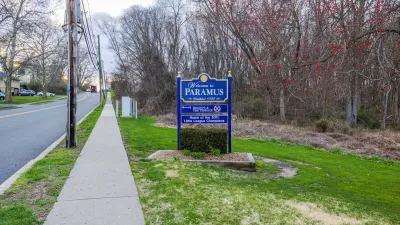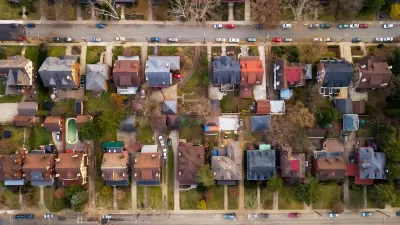The city has grown its housing stock and limited rent cost increase to just 1 percent.

Minneapolis zoning reforms had a rough go of it in 2023, but data from the last several years reveal that the city’s efforts to change restrictive land use policies have resulted in a 12 percent increase in the city’s housing stock—and just a 1 percent growth in rent costs, compared to a 14 percent jump in the rest of Minnesota. “In fact, the city has the slowest rent-growth rate among the country’s major growing municipalities,” according to Route Fifty’s Molly Bolan.
“Policies around parking and permitting near commercial areas and public transit were the two most important steps in encouraging housing construction,” Alex Horowitz, director of Pew Charitable Trusts’ housing policy team, told Route Fifty. These policies led to almost 21,000 new permitted housing units.
“Surprisingly, eliminating single-family zoning and allowing two-to-four-unit buildings on all residential lots in the city—the policy that garnered the most attention nationwide—accounted for only 1% of new permits.” However, Horowitz points out that these reforms will also help increase the housing stock over a longer term.
FULL STORY: Do land-use reforms spur housing development? You betcha.

Study: Maui’s Plan to Convert Vacation Rentals to Long-Term Housing Could Cause Nearly $1 Billion Economic Loss
The plan would reduce visitor accommodation by 25,% resulting in 1,900 jobs lost.

North Texas Transit Leaders Tout Benefits of TOD for Growing Region
At a summit focused on transit-oriented development, policymakers discussed how North Texas’ expanded light rail system can serve as a tool for economic growth.

Using Old Oil and Gas Wells for Green Energy Storage
Penn State researchers have found that repurposing abandoned oil and gas wells for geothermal-assisted compressed-air energy storage can boost efficiency, reduce environmental risks, and support clean energy and job transitions.

Private Donations Propel Early Restoration of Palisades Playground
Los Angeles has secured over $1.3 million in private funding to restore the Pacific Palisades playground months ahead of schedule, creating a modern, accessible space that supports community healing after recent wildfires.

From Blight to Benefit: Early Results From California’s Equitable Cleanup Program
The Equitable Community Revitalization Grant (ECRG) program is reshaping brownfield redevelopment by prioritizing projects in low-income and environmental justice communities, emphasizing equity, transparency, and community benefits.

Planting Relief: Tackling Las Vegas Heat One Tree at a Time
Nevada Plants, a Las Vegas-based nonprofit, is combating the city’s extreme urban heat by giving away trees to residents in underserved neighborhoods, promoting shade, sustainability, and community health.
Urban Design for Planners 1: Software Tools
This six-course series explores essential urban design concepts using open source software and equips planners with the tools they need to participate fully in the urban design process.
Planning for Universal Design
Learn the tools for implementing Universal Design in planning regulations.
Ascent Environmental
Borough of Carlisle
Institute for Housing and Urban Development Studies (IHS)
City of Grandview
Harvard GSD Executive Education
Toledo-Lucas County Plan Commissions
Salt Lake City
NYU Wagner Graduate School of Public Service





























